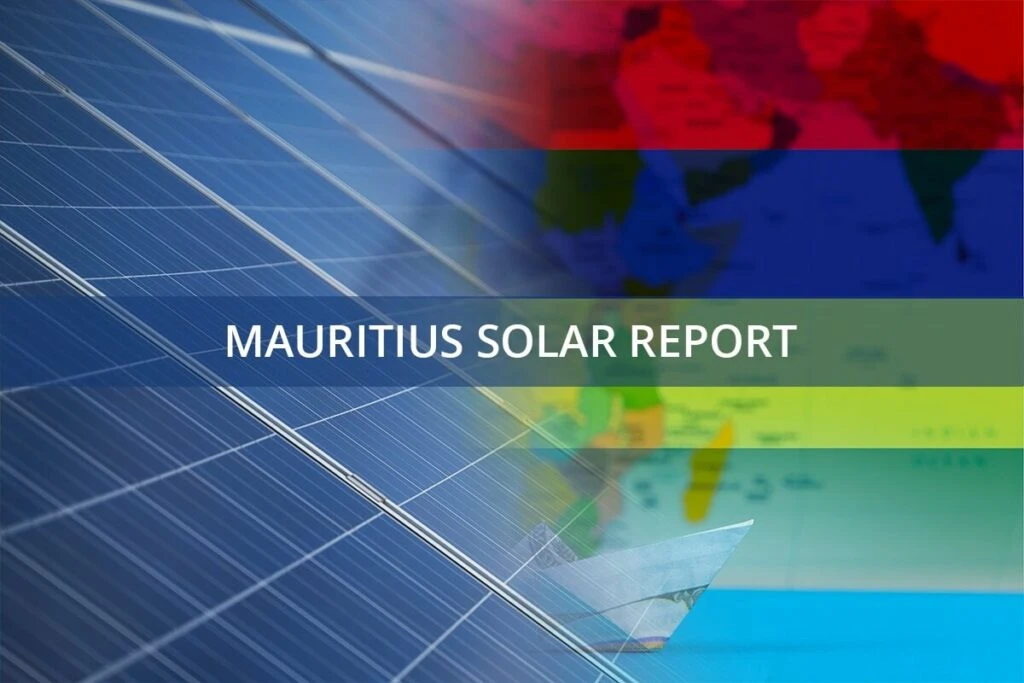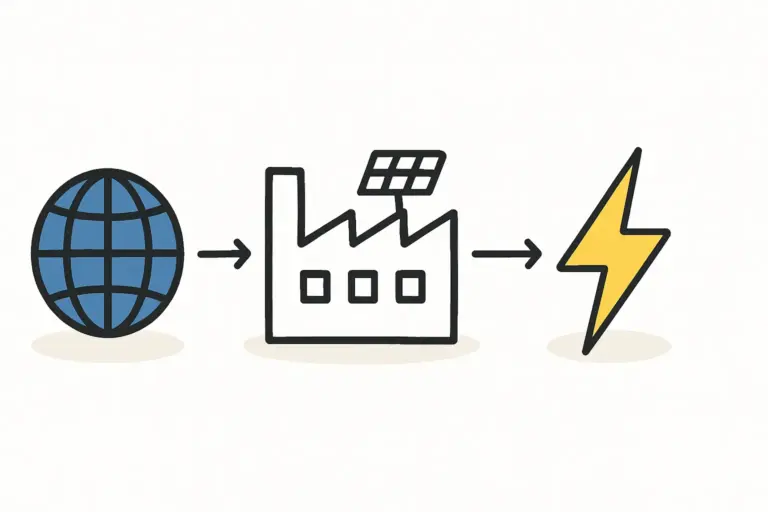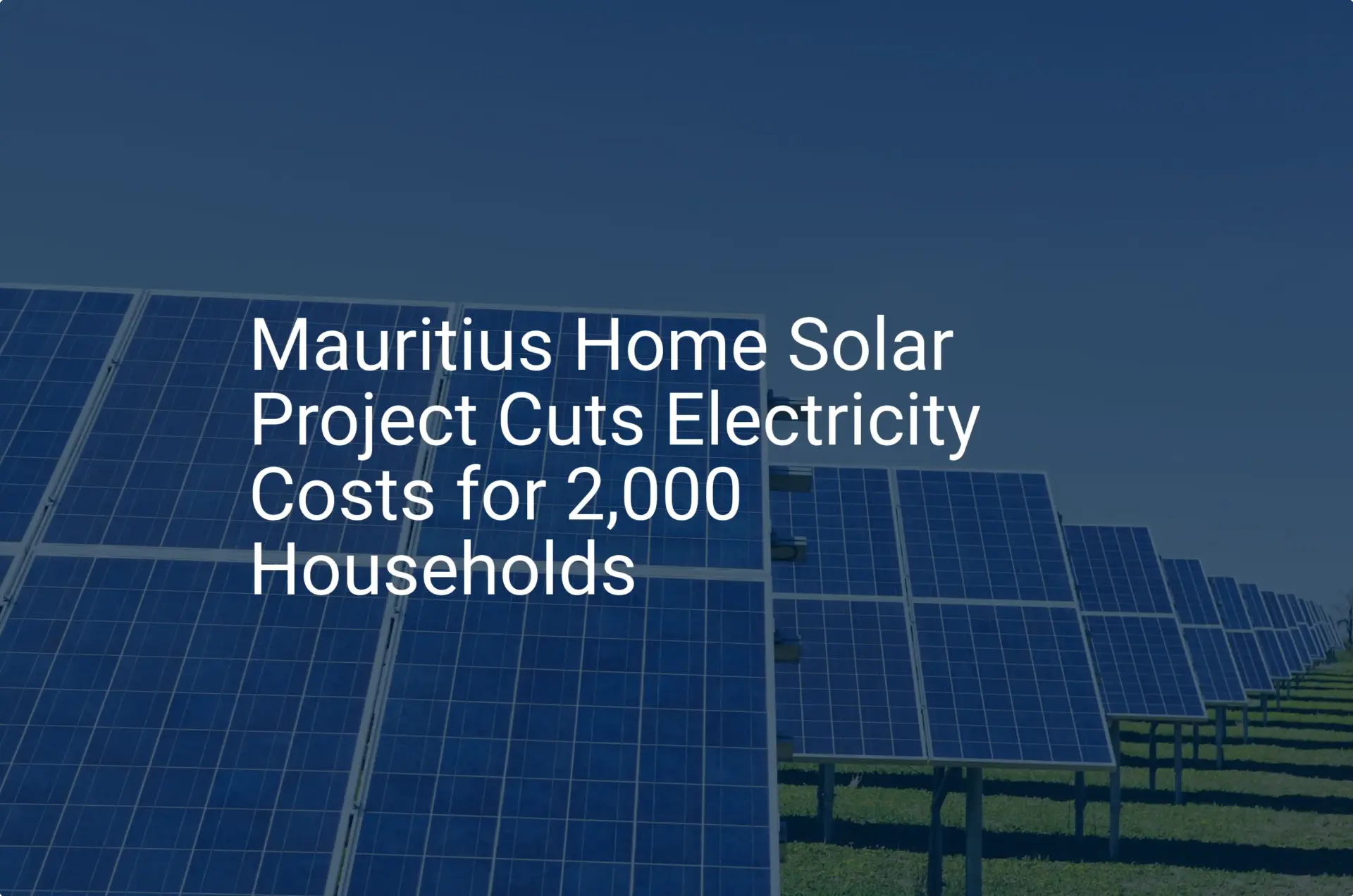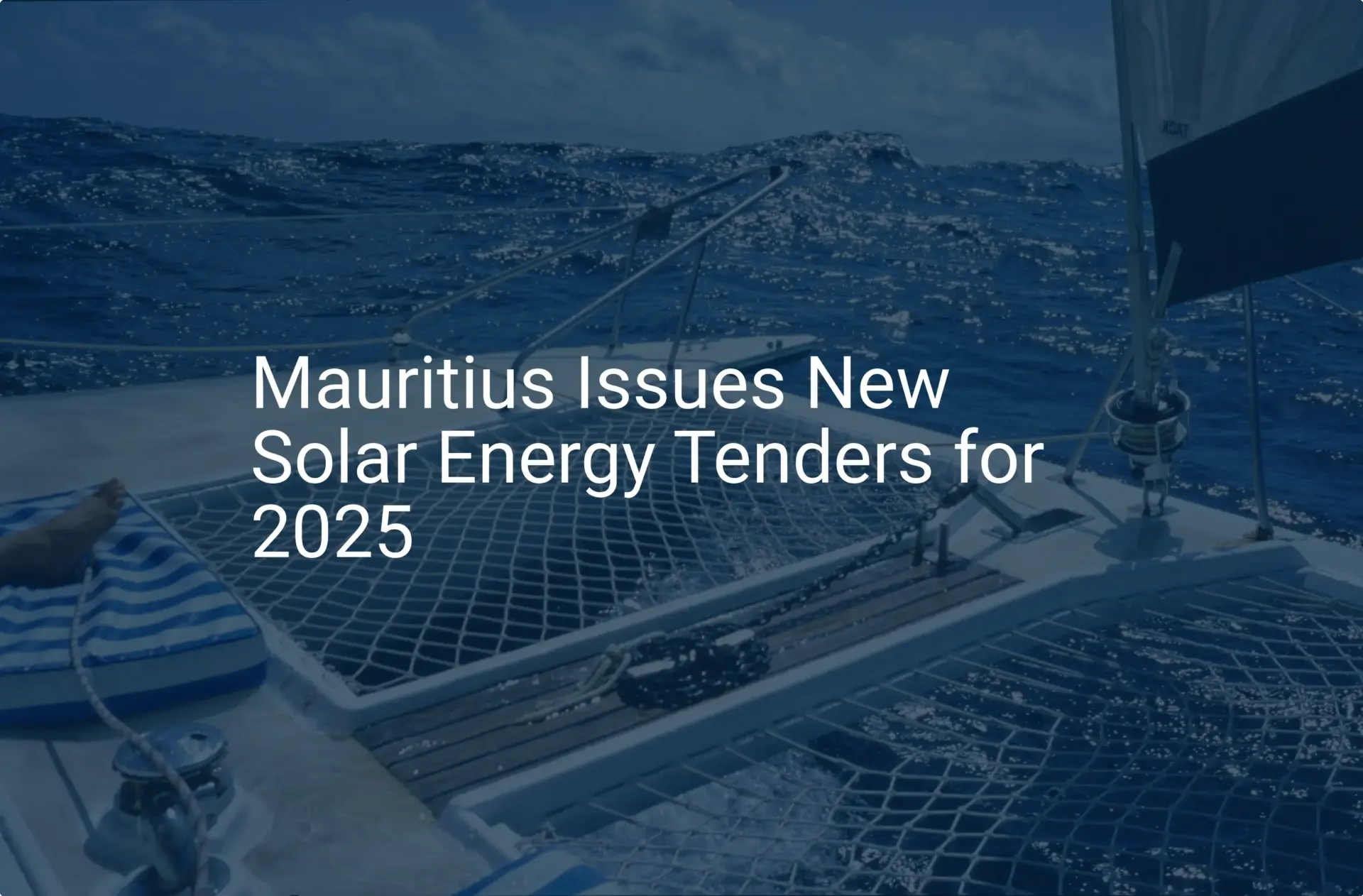When entrepreneurs consider establishing a manufacturing facility, they often picture traditional industrial hubs in Asia or Europe. Yet, a closer strategic analysis reveals that emerging locations can offer a more compelling mix of financial incentives, market access, and operational stability.
The island nation of Mauritius, for instance, has quietly positioned itself as a highly attractive base for solar manufacturing, especially for businesses aiming to serve the African continent and beyond. This article examines the specific fiscal and non-fiscal incentives Mauritius offers to investors in the solar PV manufacturing sector. It goes beyond general statements to explore the practical impact these policies have on a new business venture, from initial capital outlay to long-term profitability.

The Foundation: The Investment Promotion Act
The Mauritian government’s commitment to renewable energy is codified in its legal framework, primarily through the Investment Promotion Act. This legislation is less a statement of intent and more a detailed roadmap that provides concrete, legally-backed benefits to investors. For prospective solar manufacturers, its most relevant component is the Renewable Energy Scheme.
This scheme specifically targets companies involved in producing photovoltaic wafers, cells, and modules. It serves as the gateway to a suite of powerful incentives designed to de-risk investment and accelerate the path to profitability. The central administrative body is the Economic Development Board (EDB) of Mauritius, which acts as a single point of contact for investors and streamlines what is often a complex process in other jurisdictions.
Core Financial Benefits for Solar Manufacturers
For any new manufacturing enterprise, managing initial capital expenditure and optimizing cash flow in the early years are critical. Mauritius’s incentive structure directly addresses these challenges.
The 8-Year Corporate Tax Holiday Explained
The most significant incentive under the Renewable Energy Scheme is an eight-year tax holiday on corporate profits. This exempts a qualifying solar module manufacturing company from the standard 15% corporate income tax for its first eight years of operation.
This provision has a profound impact on a company’s financial model. All profits generated during this period can be reinvested into the business to expand production, invest in R&D, or build cash reserves. For an entrepreneur developing a solar panel manufacturing business plan, this incentive can dramatically shorten the timeline to break even and achieve a return on investment.
Reducing Upfront Investment: Duty and VAT Exemptions
A solar factory’s initial investment is heavily weighted toward the cost of equipment. A typical setup requires a significant outlay for specialized solar module manufacturing machines such as cell stringers, laminators, and testers.
Mauritius mitigates this substantial upfront cost through two key exemptions:
-
Customs Duty Exemption: All approved machinery, equipment, and raw materials imported for the manufacturing process are exempt from customs duties.
-
Value Added Tax (VAT) Exemption: Manufacturing equipment is also exempt from the 15% VAT, further reducing the initial capital required.
These exemptions directly lower the barrier to entry, making the project more attractive to financiers and lessening the investor’s financial burden. This is particularly advantageous for those considering a turnkey solar manufacturing line, as it substantially decreases the total project cost.
Strategic Advantages Beyond Direct Financial Incentives
While financial incentives are compelling, a manufacturing operation’s long-term success also depends on its strategic positioning. Here, Mauritius offers several key advantages.
Access to Key African and Global Markets
As a member of major regional trade blocs like the Southern African Development Community (SADC) and the Common Market for Eastern and Southern Africa (COMESA), Mauritius provides manufacturers with preferential or duty-free access to a market of over 600 million people.
For a solar manufacturer, this means modules produced in Mauritius can be exported to key markets across East and Southern Africa without the tariffs applied to products from China or Europe. The result is a significant competitive advantage in pricing and market access.
A Stable and Supportive Business Environment
For international entrepreneurs, predictability and stability are paramount. Mauritius consistently ranks high in Africa for its ease of doing business, political stability, and governance. Its legal system, a hybrid of English and French law, provides a familiar and robust framework for contracts and commerce.
The largely bilingual (English and French) workforce simplifies management, training, and international business communication. This stable operating environment reduces the political and operational risks often associated with investing in a new region.

The Practical Steps: Engaging with the Economic Development Board (EDB)
The Mauritian government has centralized the investment process through the EDB, which is responsible for:
- Promoting investment opportunities.
- Guiding investors through the application process.
- Assisting with permits, licenses, and clearances.
- Providing information on the legal and regulatory framework.
For business professionals without prior experience in the country, the EDB serves as a crucial partner, simplifying the administrative journey from an initial inquiry to the issuance of an Investment Certificate.
Frequently Asked Questions (FAQ)
What are the eligibility criteria for the Renewable Energy Scheme?
To qualify, a company must be incorporated in Mauritius and manufacture PV wafers, cells, modules, or other specified renewable energy equipment. A detailed project proposal and business plan must be submitted to the EDB for approval.
Is there a minimum investment threshold to qualify?
While specific minimums can vary based on project scope, the scheme is designed to attract substantial, commercially viable manufacturing operations. The focus is more on the project’s potential for job creation, export, and technological contribution than on a rigid investment figure.
How long does the application process typically take?
With a well-prepared submission, securing an Investment Certificate through the EDB is an efficient process. Timelines can range from a few weeks to several months, depending on the project’s complexity.
What happens after the 8-year tax holiday expires?
After the eight-year exemption period, the company becomes subject to the standard corporate income tax rate, currently a flat 15%. This rate remains competitive on a global scale.
Conclusion: Evaluating Mauritius as a Strategic Base
Mauritius presents a carefully constructed, multi-faceted value proposition for prospective solar manufacturers. The combination of an eight-year tax holiday, exemptions on import duties and VAT, and preferential access to vast African markets creates a uniquely favorable investment environment.
For entrepreneurs and investors conducting due diligence on where to establish a solar manufacturing presence, these incentives fundamentally alter the financial calculations. They transform Mauritius from a simple island nation into a strategic industrial platform for accessing some of the world’s fastest-growing energy markets. A thorough evaluation of this opportunity is a prudent step for any serious contender in the global solar industry.







